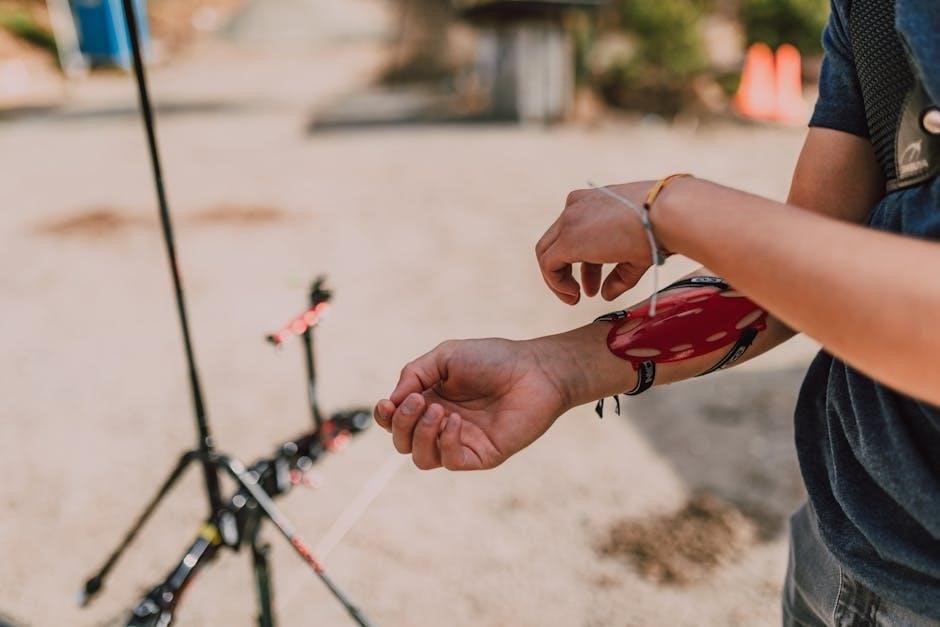how do you become a hunting guide
How to Become a Hunting Guide
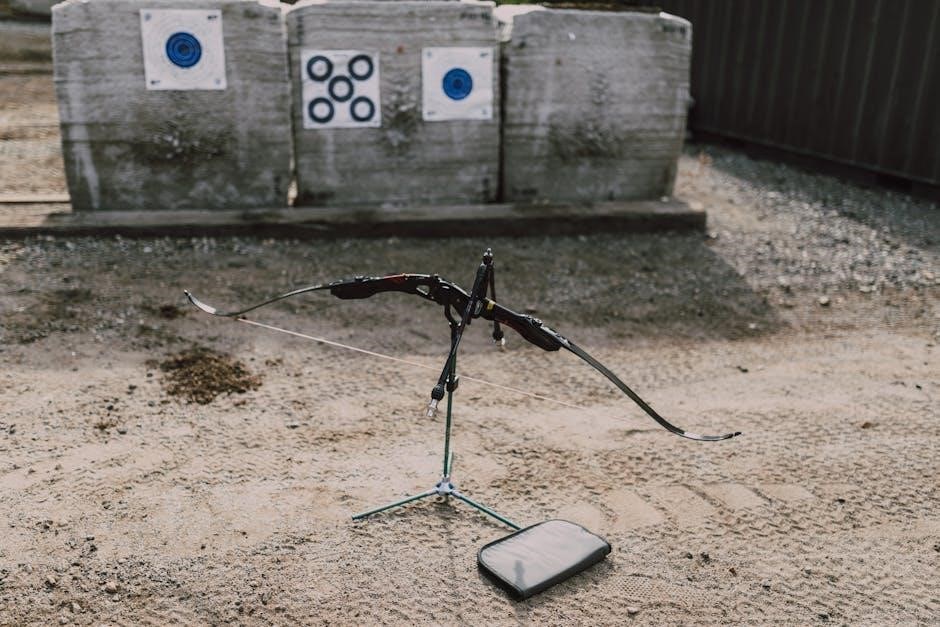
To excel as a hunting guide‚ master wildlife behavior‚ habitats‚ and terrain. Scouting is key—95% of success happens pre-hunt. Study animal movement‚ bedding areas‚ and feeding patterns. Understand wind direction and use tools like GPS for navigation.
Becoming a hunting guide requires a blend of knowledge‚ experience‚ and passion for the outdoors. To start‚ it’s essential to understand the role of a hunting guide‚ which involves leading hunters‚ ensuring safety‚ and providing a successful hunting experience. Begin by taking hunter education courses to learn about hunting regulations‚ safety protocols‚ and game management. These courses are often mandatory for obtaining a hunting license and provide a foundational understanding of ethical hunting practices.
Gaining practical experience is crucial. Consider joining hunting trips with experienced guides or participating in hunting clubs to learn hands-on skills. Additionally‚ researching state-specific certifications and licenses is necessary to operate legally. Physical fitness is another important aspect‚ as guides often face challenging terrain and weather conditions.
Familiarizing yourself with hunting gear and equipment is also vital. Understanding animal behavior‚ habitats‚ and migration patterns can enhance your ability to locate game effectively. Networking with other guides and outdoor professionals can provide valuable insights and opportunities. Finally‚ staying updated on regulations and best practices through continuous learning will help you excel in this rewarding career.
Education and Training
Becoming a hunting guide requires a combination of formal education and hands-on training. Start by completing hunter education courses‚ which are mandatory in many states to obtain a hunting license. These courses cover essential topics like hunting laws‚ safety‚ and wildlife conservation. While a formal degree isn’t always required‚ studying wildlife management‚ biology‚ or outdoor recreation can provide a strong foundation.
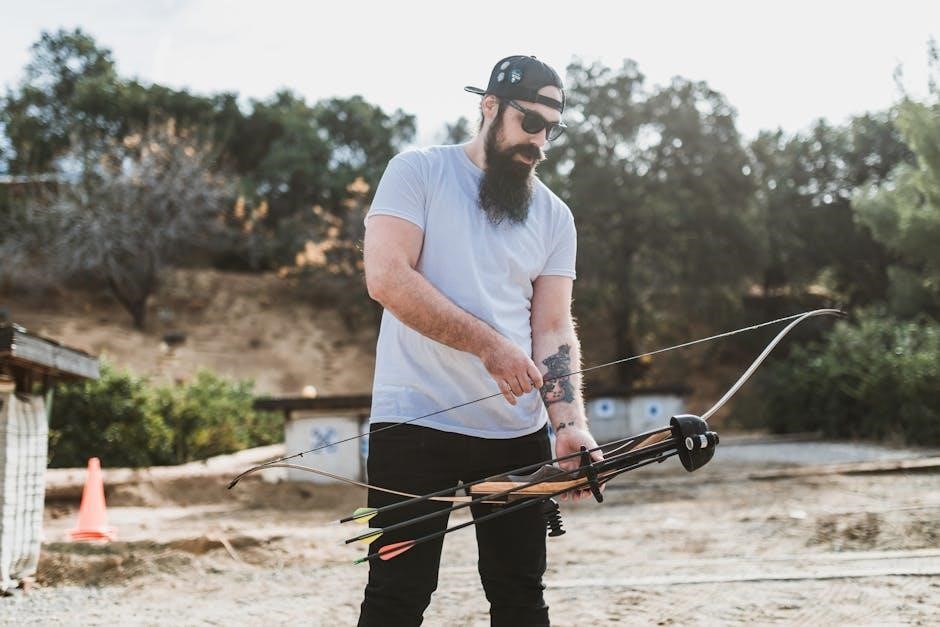
Hands-on experience is equally important. Consider apprenticing with an experienced guide to learn practical skills like tracking‚ field dressing‚ and navigating terrain. Many states also offer guide training programs or workshops that focus on specific hunting techniques and safety protocols. Additionally‚ certifications in wilderness first aid and CPR are highly recommended to ensure you can handle emergencies effectively.
Continuous learning is key‚ as hunting regulations and best practices evolve over time. Stay updated by attending seminars‚ reading industry publications‚ and joining professional associations. Combining formal education with practical training will equip you with the skills and knowledge needed to excel as a hunting guide.
Licensing and Certification
Obtaining the proper licensing and certification is a critical step in becoming a hunting guide. Requirements vary by state‚ so it’s essential to consult with your local game warden or wildlife agency to understand specific regulations. Typically‚ you’ll need a hunting license‚ and many states require a separate guide license or permit. These credentials ensure you’re legally authorized to lead hunting expeditions.
Certifications in first aid and CPR are often mandatory due to the potential risks involved in hunting. These certifications prepare you to handle emergencies effectively. Additionally‚ professional certifications from reputable organizations can enhance your credibility. Consider pursuing wildlife conservation certifications or specialized hunting guide courses to stand out in the field.
The process usually involves completing a course‚ passing an exam‚ or applying directly for the license. Be prepared for associated costs‚ as fees for licenses and certifications can vary. Liability insurance is also crucial to protect yourself and clients in case of accidents. Check if it’s required or available through professional associations.
Finally‚ understand the renewal process for licenses and certifications‚ as they often expire annually or every few years. Staying informed about updates ensures ongoing compliance with regulations. Proper licensing and certification are foundational to building a reputable and safe guiding business.
Essential Skills for Hunting Guides
Success as a hunting guide demands a blend of practical and interpersonal skills. Field skills are paramount‚ including tracking‚ stalking‚ and field dressing animals. Knowledge of wildlife behavior‚ such as animal movement patterns and habitat preferences‚ is critical. Guides must also excel in navigation‚ using tools like GPS and maps to locate game and ensure safe travel.
Physical stamina is essential‚ as guides often work in challenging terrain and harsh weather conditions. Strong communication skills are vital for interacting with clients‚ providing clear instructions‚ and ensuring a positive experience. Problem-solving abilities are key for handling unexpected situations‚ such as changing weather or injured animals.
Attention to detail ensures safety and efficiency‚ while patience helps clients succeed‚ especially during long waits or challenging hunts. Ethical practices‚ such as adhering to conservation principles‚ build trust and maintain a good reputation. Mastery of these skills ensures guides provide memorable and safe hunting experiences‚ fostering client loyalty and professional growth.
Legal and Ethical Considerations
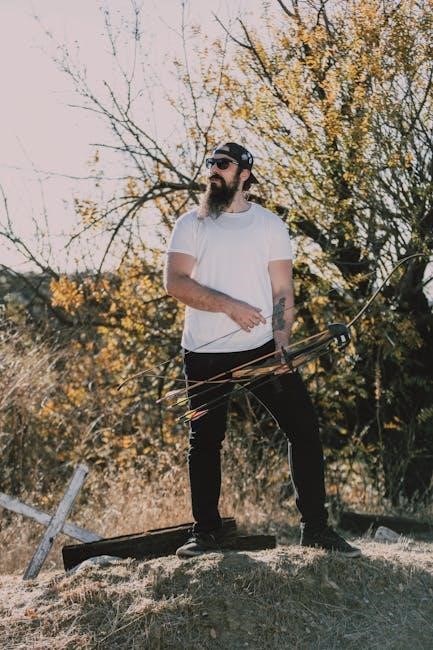
Becoming a hunting guide requires strict adherence to legal and ethical standards. Guides must stay updated on local‚ state‚ and federal hunting regulations‚ ensuring compliance with permits‚ licenses‚ and season restrictions. Understanding game laws is crucial to avoid legal issues and maintain a professional reputation.
Ethical practices are equally important. Guides should promote fair chase‚ respect wildlife‚ and minimize environmental impact. This includes avoiding baiting‚ ensuring humane treatment of animals‚ and supporting conservation efforts. Ethical guiding fosters trust with clients and preserves hunting traditions.
Additionally‚ guides must obtain necessary insurance to protect themselves and clients during hunts. Liability insurance is essential to cover potential accidents or property damage. By prioritizing legality and ethics‚ guides ensure sustainable and responsible hunting experiences that benefit both clients and the environment.
Guides should also educate clients on ethical hunting practices‚ ensuring they follow all rules and respect the land. This commitment to legality and ethics is vital for the long-term success of both the guide and the hunting industry as a whole.
Building Your Knowledge of Wildlife and Terrain
Mastering wildlife behavior and terrain is essential for hunting guides. Study animal habitats‚ migration patterns‚ and tracking techniques to locate game effectively. Knowledge of wind direction‚ cover‚ and feeding areas enhances success; Understanding terrain involves mapping landscapes‚ using GPS‚ and recognizing landmarks. Guides must also learn about vegetation‚ water sources‚ and how weather influences animal movement. This expertise helps guides lead clients to optimal hunting spots and ensure a safe‚ productive experience. Continuous learning through field experience and research keeps skills sharp‚ allowing guides to adapt to changing environments and animal behaviors. A deep connection with nature and its rhythms is vital for guiding effectively and ethically‚ ensuring sustainable hunting practices that respect the environment and wildlife. This comprehensive understanding of wildlife and terrain is fundamental to becoming a skilled and reliable hunting guide.
Setting Up Your Guiding Business
Setting up a hunting guide business requires careful planning and execution. Start by researching your target market and competition to identify opportunities. Develop a detailed business plan‚ including budget‚ services offered‚ and marketing strategies. Ensure compliance with local regulations by obtaining necessary licenses and permits. Build a strong brand identity with a professional logo‚ website‚ and social media presence to attract clients. Invest in quality equipment and gear to ensure safe and successful hunts. Consider liability insurance to protect yourself and your business in case of accidents. Price your services competitively‚ factoring in expenses like permits‚ gear‚ and guide wages. Create a contract outlining terms‚ payment policies‚ and safety guidelines for clients. Network with local outfitters‚ lodges‚ and hunting communities to build partnerships and referrals. Finally‚ focus on delivering exceptional customer experiences to build a loyal client base and positive reputation. A well-organized business setup is crucial for long-term success as a hunting guide;
Marketing and Finding Clients
Effectively marketing your services and finding clients is crucial for a successful hunting guide business. Start by creating a professional website showcasing your expertise‚ services‚ and testimonials from past clients. Use search engine optimization (SEO) to ensure your site ranks high in search results for keywords like “hunting guide services” or “guided hunts near me.” Leverage social media platforms like Instagram and Facebook to share engaging content‚ such as hunting tips‚ success stories‚ and high-quality photos or videos of your adventures. Collaborate with outdoor gear companies or hunting blogs to expand your reach. Attend hunting expos‚ trade shows‚ and local community events to network with potential clients. Offer referral incentives to encourage satisfied customers to recommend your services to others. Consider listing your business in online directories or forums frequented by hunters. Building a strong online presence and leveraging word-of-mouth marketing are essential for attracting and retaining clients. Consistent and creative marketing efforts will help establish your reputation as a reliable and skilled hunting guide.
Physical and Mental Demands of the Job
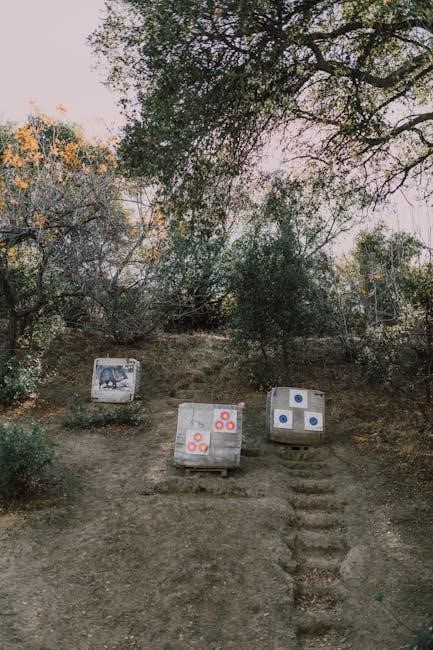
Becoming a hunting guide requires meeting significant physical and mental demands. Physically‚ guides must possess endurance‚ strength‚ and stamina to navigate rugged terrain‚ carry heavy gear‚ and withstand harsh weather conditions. They often work long hours‚ including early mornings and late evenings‚ especially during peak hunting seasons‚ which can be exhausting. Mental resilience is equally important‚ as guides need to remain focused and composed under pressure‚ ensuring client safety and managing unpredictable situations such as sudden weather changes or unexpected animal behavior.
Guides must also handle the emotional aspects of hunting‚ providing patience and support to novice clients while maintaining professionalism in challenging circumstances. The job demands adaptability and problem-solving skills‚ as guides must think critically to overcome obstacles like unfamiliar terrain or equipment issues. Continuous learning and staying updated on regulations add to the mental demands. Additionally‚ the isolation and time spent away from family can lead to feelings of loneliness‚ requiring a strong work-life balance to prevent burnout. Overall‚ the role of a hunting guide is both physically and mentally challenging‚ suitable for those with a deep passion for the outdoors and the fortitude to handle its rigors.
Staying Updated on Regulations and Best Practices
Staying updated on regulations and best practices is crucial for hunting guides to ensure legal compliance and ethical hunting experiences. Guides must regularly review local‚ state‚ and federal hunting laws‚ which often change. Building relationships with game wardens and wildlife agencies provides valuable insights and updates. Ethical hunting practices‚ such as fair chase and proper field dressing‚ enhance the guide’s reputation and client satisfaction. Guides should also stay informed about environmental conservation efforts to promote sustainable hunting. Joining professional organizations offers access to workshops‚ webinars‚ and networking opportunities that keep guides informed. Continuous learning ensures that guides adapt to new regulations and maintain high standards. Regular training in first aid and wilderness survival is essential for handling emergencies. By staying informed and adhering to best practices‚ guides provide safe and successful hunting experiences while preserving the environment for future generations.
Continuous Learning and Professional Development
Continuous learning and professional development are essential for hunting guides to remain competitive and effective. Attend workshops‚ seminars‚ and online courses to stay updated on wildlife management‚ hunting techniques‚ and safety protocols. Platforms like Safari Club International and the National Rifle Association offer certifications and training programs that enhance your expertise. Join professional associations‚ such as the National Wild Turkey Federation‚ to network with other guides and gain insights into best practices. Mentorship programs can also provide valuable guidance from experienced guides. Additionally‚ staying informed about new gear and technology‚ such as GPS tracking devices and binoculars‚ ensures you remain equipped with the latest tools. Sharing knowledge through teaching or writing further solidifies your understanding and builds your reputation. By committing to lifelong learning‚ you not only improve your skills but also contribute to the growth of the hunting community‚ ensuring a safe and successful experience for clients.
